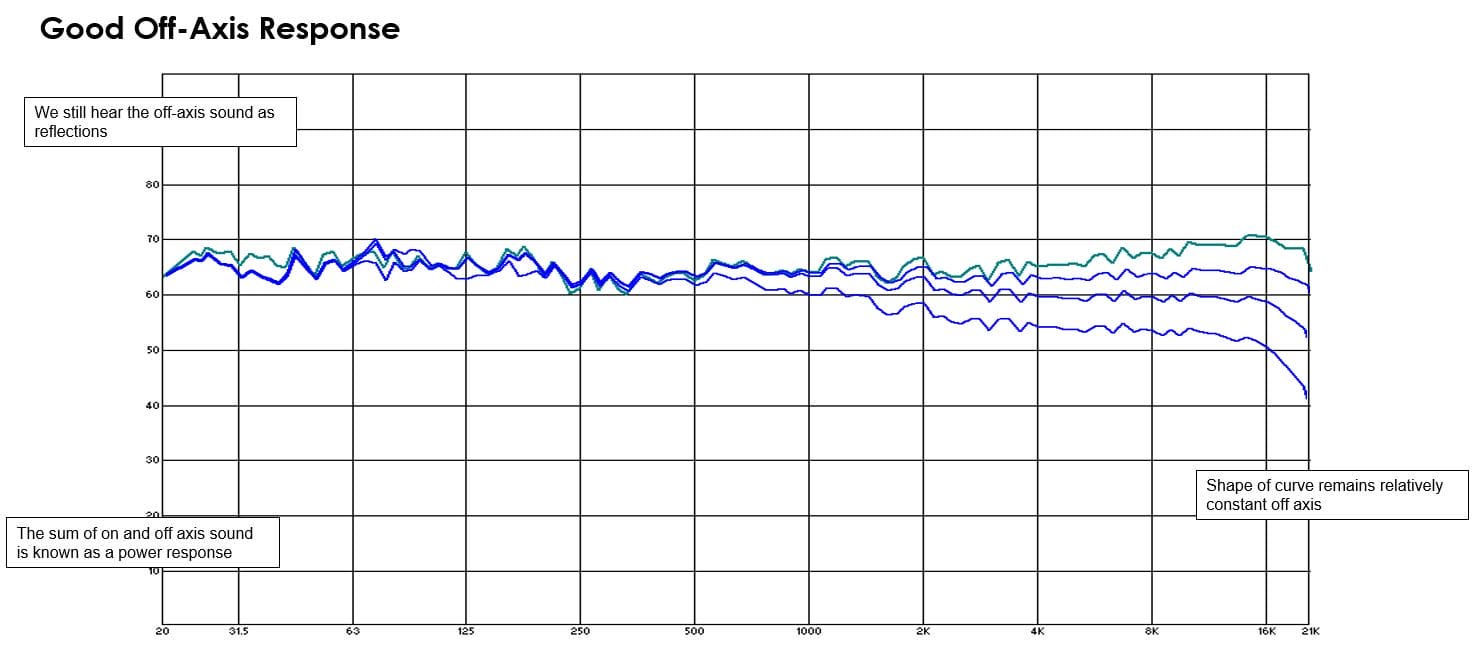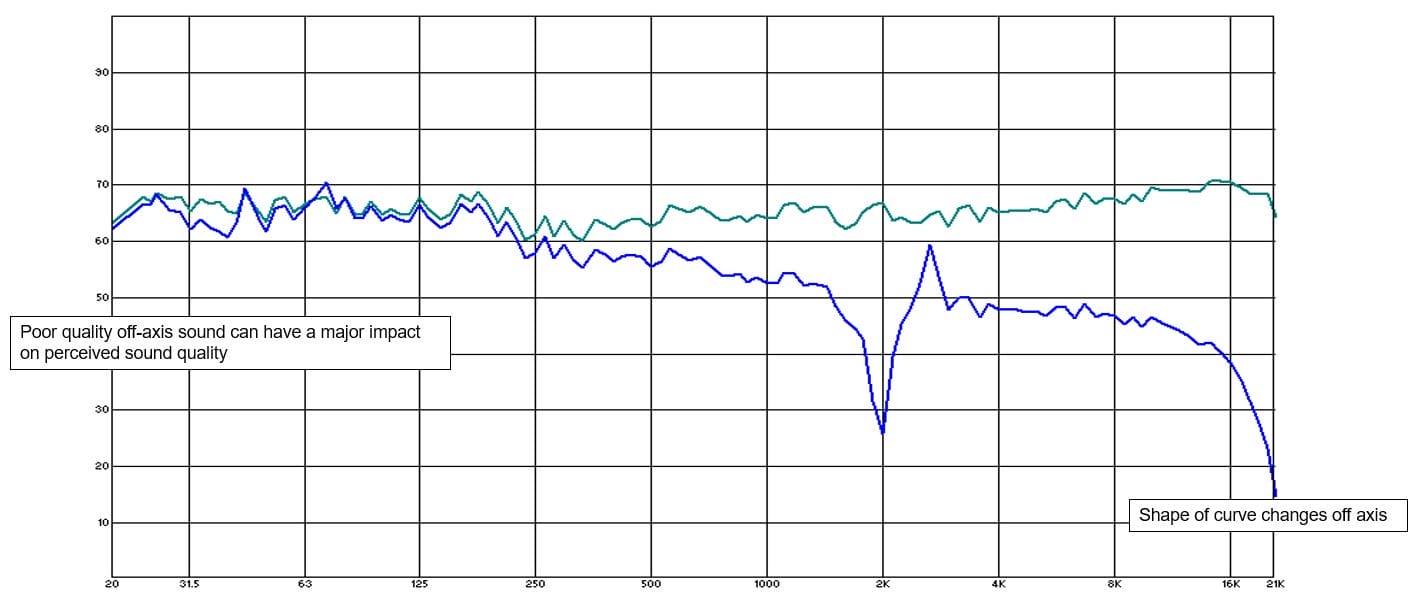
- Click the arrow on the checklist item to open the FFT response test.
- This is an optional item used when the MLP measurement of a speaker shows anomalies from it's near field response.
- Follow the procedures for a near field measurement. This time we'll take 6 measurements of the same speaker.
- The initial measurement is with the microphone on axis with the drivers.
- Subsequent measurements require the speaker to be turned off axis in 15 degrees increments. This should spin the speaker a total of 90 degrees.
- For in-wall or mounted speakers, you may need to move the microphone to take measurements at various angles.
- Each measurement should be saved by using the "+" control.
- The final outcome should shown all measurements overlaid to show the sloping of the response as the speaker turns away from the microphone.
- Once you've completed, touch the "Screenshot" icon to save an image of the plot. Touch the return arrow, mark the item complete, and add any comments.

Poor Off Axis Response
- The near field test is designed to confirm the speaker is operating properly but it doesn't explore the off axis response.
- A poorly engineered speaker can show a flat on axis response, but a good speakers off axis response should correlate reasonably.
- It is expected that off axis measurements will show increasingly more high frequency sloping as you increase the angle but the general shape of the curve should be consistent.
- If the off-axis plot seems to deviate substantially from the general shape of the on axis response this exposes a problem.
- The problem may be with a poorly engineered speaker but it can also be caused by a defective or damaged driver or crossover.
- Installation can also be the issue such as in situations where the speaker is partially blocked by some obstruction.
- The off axis signal can comprise 50% or more of the signal heard by listeners and this can color the sound quality.

